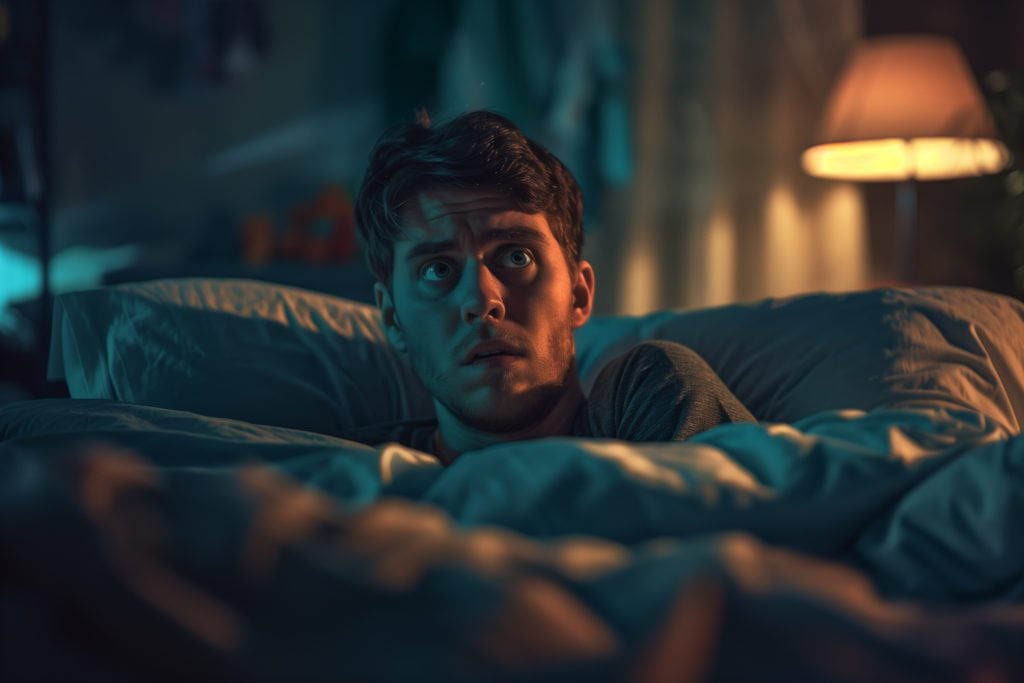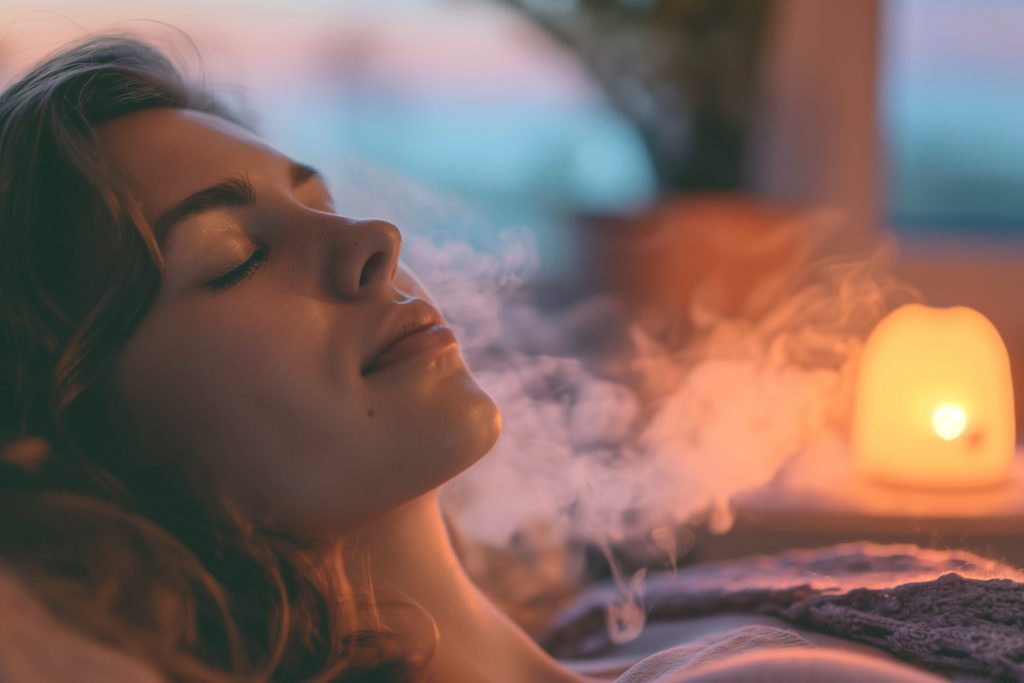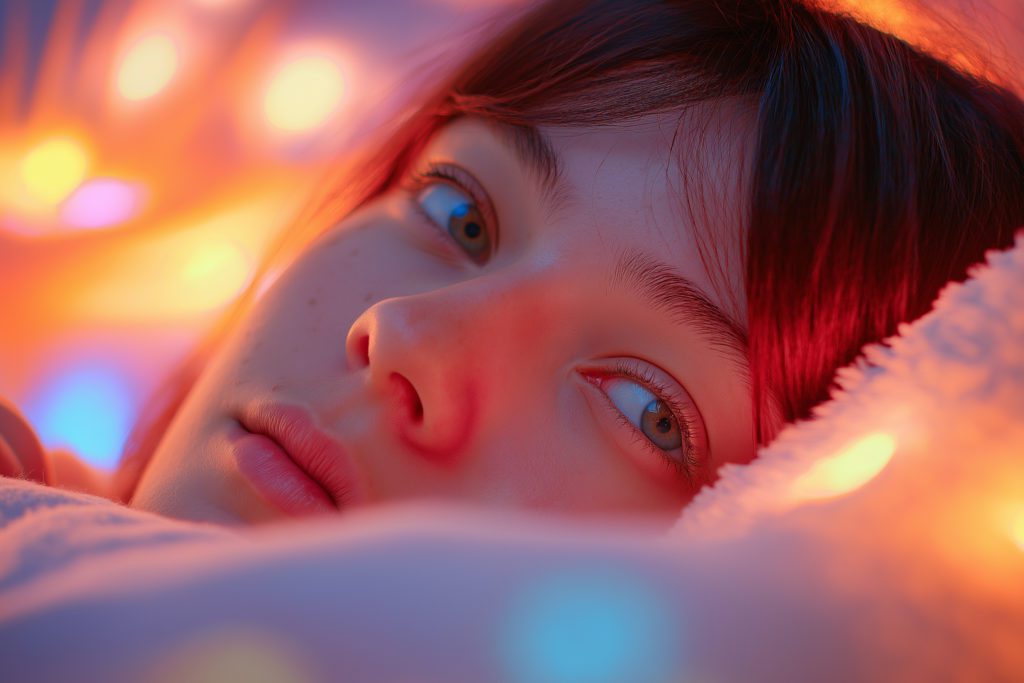
The Link Between Dreams and Sleep Disorders: Understanding Nightmares, Sleepwalking, and REM Behavior Disorder
Struggle with sleepwalking or nightmares? It might be tied to a sleep disorder. Read on to discover the link between dreams and sleep disorders!

Our dreams have a way of speaking to us, often sharing more about our health and our consciousness than we may realize. However, have you ever wondered what other connections our nightmares, for instance, have to certain sleep disorders? If you have been caught sleepwalking or have recurring nightmares, studies show that these may actually be a sign of a sleep disorder, such as REM behavior disorder or even sleep apnea or restless leg syndrome.
If you’re curious about the connection between our dreams and sleep disorders, then keep reading. In this article, we’ll explore how nightmares can relate to certain sleep disorders. We’ll also look at how sleepwalking and acting out our dreams can be tied to sleep disorders like sleep apnea, restless leg syndrome, REM behavior disorder, and even insomnia. Let’s first touch upon why nightmares have been said to indicate sleep disorders.
Nightmares Might Indicate Sleep Disorders
Your dreams and nightmares are more than just figments of your imagination; they can also be signs of a sleep disorder. If you have endured a traumatic situation but may not fit the criteria of those with post-traumatic stress disorder (PTSD), chances are that you may have trauma-associated sleep disorder, which is characterized by specific parasomnia symptoms and can look like PTSD but not entirely. One of the common signs of this sleep disorder is actually frequent nightmares.
Even more interesting, according to the same study, when you experience this trauma, it could indicate what sleep disorder you have. Those who experience trauma in their adulthood are likely to have nightmares, while those who experience childhood trauma might act out their dreams. However, nightmares are not just tied to trauma-associated sleep disorders but also insomnia.
If you’ve ever had a recurring nightmare that worries you enough to avoid sleep, then you may have experienced insomnia. Unfortunately, insomnia, nightmares, and obstructive sleep apnea can trigger and influence one another and form a horrible cycle, leading to less quality sleep or even an apparent avoidance of such (Source: Frontiers in Psychiatry). So, as you can see, nightmares can indicate trauma-associated sleep disorders, insomnia, and even obstructive sleep apnea, showing just how much our dreams could indicate certain disorders.
However, aside from nightmares, sleepwalking also has distinct ties to sleep disorders, namely sleep apnea and restless leg syndrome.
Sleepwalking Can Be Tied to Sleep Apnea and Restless Leg Syndrome
If you’ve ever been caught sleepwalking, you might be surprised to know that this parasomnia can be tied to both sleep apnea and restless leg syndrome, according to several experts. Parasomnias like sleepwalking that occur during non-REM sleep are actually common, but obstructive sleep apnea might be a risk factor for these parasomnias (Source: PubMed). So, if you have sleep apnea, you might have an increased likelihood of developing parasomnias like sleepwalking.
Sleepwalking is not just connected to sleep apnea but also to restless leg syndrome. As the name suggests, restless leg syndrome is usually defined by people’s “motor restlessness,” but this alone can explain why people sleepwalk. Even though you might not have a memory of getting up in the middle of the night to wander through your room or house, your sleepwalking could be because of the unusual restlessness you feel at night due to restless leg syndrome. It is more likely that this will occur when you are younger, as studies show that sleepwalking with restless leg syndrome may decrease as you age.
Sleepwalking has not been solidly connected to sleep apnea and restless leg syndrome, but these findings do suggest that sleepwalking could be a sign of these sleep disorders. It’s fascinating to think that this parasomnia could have more significant implications for our sleep health, but what about acting out our dreams? That’s what we will explore next, including how this might tie to REM behavior disorder.
Acting Out Your Dreams Might Be a Sign of REM Behavior Disorder
If a dream has ever felt too real or you may have caught yourself acting out what is happening inside your head, you may have REM behavior disorder. REM behavior disorder is one of the most fascinating sleep disorders, usually apparent when someone does not experience relaxed muscles and instead acts out their dreams or nightmares (Source: Frontiers in Neurology). While some may have limb movements and act out their dreams occasionally, people with REM behavior disorder will more often than not act out their dream experiences.
No matter what your dreams are, the impacts of REM behavior disorder are clear, according to many experts: not only will you end up moving around more than usual, but you’ll use a lot of energy, not have control of your posture, and may even experience muscle twitches. You'll also lose out on precious REM sleep that you need to feel your best and most rested. That’s not great news for those who want to experience better sleep, and that’s why many people see REM behavior disorder as so essential to treat.
As pleasant as some of your dreams may be while experiencing REM behavior disorder, you should know that this sleep disorder has been connected to neurological conditions. Some even see that isolated REM behavior disorder can be tied to neurodegenerative conditions, so it is essential that you take steps to protect your health, understand your sleep health, and improve your ability to get quality rest.
Manage Your Sleep Health and Support Optimal Rest
With an understanding of how your dreams can be tied to sleep disorders, you now know more about your sleep health and the steps you must take to promote optimal rest. Whether you have nightmares, engage in sleepwalking, or act out your dreams, you can seek help from medical professionals and make adjustments to promote your health. To check out more articles on the latest research so you can improve your sleep health, visit our website today to read more.
FAQ
How does sleep paralysis relate to sleep disorders and dreams?
Sleep paralysis occurs during transitions between sleep and wakefulness, where one is conscious but unable to move, often accompanied by vivid hallucinations. It's linked to disrupted REM sleep and can be associated with conditions like narcolepsy.
Can improving sleep hygiene reduce the occurrence of nightmares?
Yes, establishing good sleep hygiene—such as maintaining a regular sleep schedule, creating a comfortable sleep environment, and managing stress—can help reduce the frequency of nightmares. Techniques like relaxation exercises before bedtime may also be beneficial.
How does REM sleep behavior disorder (RBD) differ from sleepwalking?
RBD involves acting out dreams during REM sleep due to a lack of normal muscle paralysis, often resulting in vivid and sometimes violent behaviors. In contrast, sleepwalking occurs during non-REM sleep and typically involves less complex behaviors.
Can sleep disorders affect cognitive functions such as memory and learning?
Yes, sleep disorders like insomnia and sleep apnea can impair cognitive functions, including memory consolidation and learning. For instance, sleep apnea is characterized by prolonged pauses in breathing during sleep, which can lead to fragmented sleep and reduced oxygen supply to the brain, thereby affecting cognitive performance.
Are there effective treatments for nightmare disorders?
Treatments for nightmare disorders include cognitive-behavioral therapy, image rehearsal therapy, and, in some cases, medication. Addressing underlying conditions like PTSD is also crucial.
Can lifestyle factors contribute to the development of sleep disorders involving dreams?
Yes, factors such as stress, irregular sleep schedules, and substance use can contribute to the development of sleep disorders that affect dreaming patterns. Managing these lifestyle factors is important for maintaining healthy sleep.
Can dietary habits influence the occurrence of vivid dreams or nightmares?
Yes, certain dietary habits can influence sleep quality and dream patterns. For instance, consuming heavy or spicy meals before bedtime can cause discomfort and disrupt sleep, potentially leading to vivid dreams or nightmares. Additionally, excessive intake of caffeine or alcohol can interfere with sleep architecture, affecting REM sleep and dream recall.

Written by
Marie Soukup
Marie Soukup is a seasoned copywriter, editor, and Integrative Nutrition Health Coach with a certificate from the Institute of Integrative Nutrition (IIN). With years of experience working with brands across diverse industries, Marie is passionate about holistic health and crafting compelling content.
Download Pillow
Get help
Press & News
Legal
Connect
X (Twitter)
Company
Copyright © Neybox Digital Ltd.



